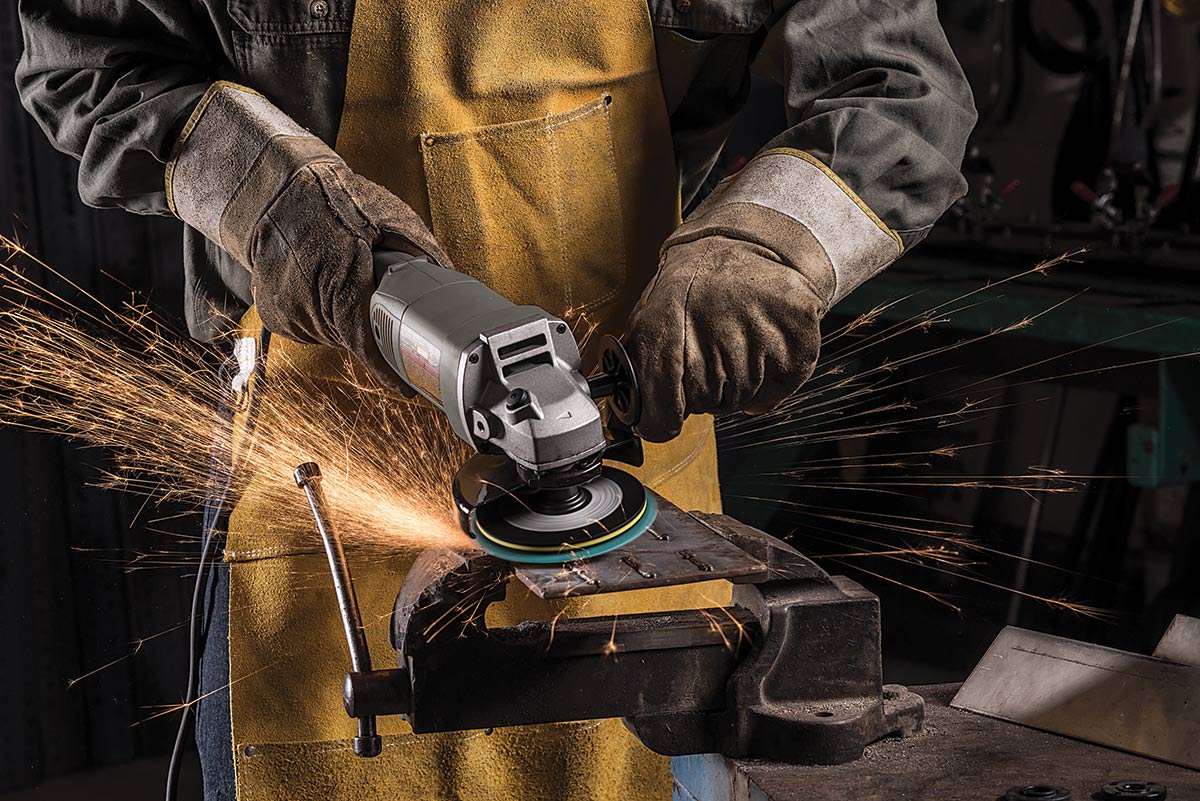
n today’s metalworking and steel fabrication markets, companies must use efficient manufacturing technologies in order to drive down costs and improve productivity. Achieving a competitive advantage amid domestic and international challenges is critical. Manufacturers continue to demand higher quality and craftsmanship from discretionary technical/consumable products and, at the same time, seek lower pricing.
However, when faced with the challenge of correctly identifying improvement initiatives, and/or bottlenecks in an operation, companies must often examine the effectiveness of their skilled workers. This poses the question of how to improve current manufacturing methods and measure processes when productivity is still largely influenced by operators.
Analysis reveals that management should, but often fails to, focus on delivering the right tools and abrasives to their production teams so that manufacturing can be improved at the root. Fit, form and function is of utmost importance, but so is the final finish and aesthetic appearance of goods being produced, which are sometimes overlooked during the last steps of the manufacturing process.
Robotic and automated quality inspection methods quickly assess and detect mechanical design or geometrical issues, but surface finish is still subjective to the appreciation and qualification of the naked eye. When it comes to producing an outstanding final finish, operators are sometimes asked to determine the best finishing process but are usually constrained by limited tool availability. Productivity is negatively affected when outdated abrasives are the only choice and the wrong grit/grain abrasive media and other unsuitable compounds are used.
For example, operators may struggle to find the right abrasive media to address some of the most common stainless steel manufacturing issues such as deep scratch or smear mark blending and removal. Operators choose from different abrasive media to eliminate grinding marks or imperfections from previous steps, but instead find they have increased grinding and blending time. That can lead to mechanical friction and heat generation, which results in surface burn or discoloration.
Depending on the business methodology, damaged parts then need to be either reworked or scrapped. This is not only costly but also limits the team’s ability to be productive when performing time-consuming rework. Lower productivity affects sales and profits, as fewer products are shipped. Less profit limits a manufacturer’s ability to reinvest in growth and business expansion initiatives, creating a repetitive non-profitable cycle.
To help fabricators increase productivity and optimize parts finishing, Norton | Saint-Gobain Abrasives recently introduced newly engineered nonwoven abrasives. Clean Bond, Norton’s latest abrasive resin technology, provides Norton nonwoven products with the ability to produce smear-free finishes. Load and debris production management is controlled by an engineered chemical-abrasive bond wear rate that helps to expose a refreshed abrasive cutting surface during the cleaning, blending and finishing operation.
In addition, when combined with high-end grains such as Norton’s proprietary Vortex agglomerated grain technology, manufacturers can expect to achieve faster and cooler cut rates. This is possible because the engineered micro fracture planes on the Norton abrasive grains enable fresh cutting tips are continually exposed, diffusing heat generation and surface discoloration, while providing better Ra surface finishes when compared with traditional aluminum oxide or silicon carbide-based abrasives products.
By combining both elements, a production facility can improve productivity in the finishing operation by removing steps in the process, including rework. Due to the smear-free finish, labor and scrap costs are lowered, and production times are shortened with fewer abrasives changeovers.
Many abrasives manufacturers also offer assistance in evaluating abrasives processes to help find other cost reductions. For example, Norton | Saint-Gobain Abrasives offers a Process Solutions Program (PSP). Norton developed the PSP to help manufacturers achieve optimal productivity by allowing insider access to its team of technical experts. Norton will review and analyze a manufacturer’s grinding process as a whole to help the company get the most out of its operation. The goal is to provide recommendations that will improve cost, quality, productivity and safety in addition to demonstrating how to produce parts faster with fewer rejections.
Worcester, Massachusetts, 508/795-5000,
www.nortonabrasives.com